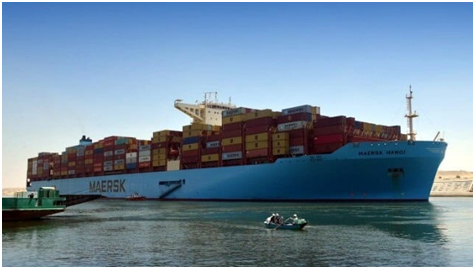
Three
months after starting to divert all its vessels from a passage through the Red
Sea, Maersk told customers today, 22 Mar, that
it is too soon in its assessment to resume its normal routes. They said the
routing around Africa allows the best supply chain stability, in their assessment,
saying that a switch is complex and they wanted to make sure it would be
sustained over the long term and avoid further disruption.
They
write that they are aware that Operation Aspides has taken shape and welcome it
as a positive development along with the U.S.-led efforts. Maersk writes that
they are also in “continuous dialogue” and monitoring developments in the
region.
“Regretfully,
both our internal analysis, as well as insight we received from external
sources, still indicates that the risk level in the region remains elevated,”
they wrote in their latest customer alert.
Maersk vessels were targeted by the
Houthi on two different occasions in December leading the carrier to first
suspend, then resume, and then suspend again transits through the region around
the Bab el-Mandeb Strait. The Maersk Gibraltar had a
near-miss incident on December 14 leading to the first pause. After getting
security assurances after the U.S.-led effort began, at the end of December
Maersk said it was updating voyage plans on a vessel-by-vessel basis, which
would see the first vessels pass through the Red Sea again.
A day
after they informed customers that they were resuming some transits, the Maersk
Hangzhou on December 30 was hit by an unknown object. The ship had
passed through the Bab al-Mandab Strait sailing from Singapore to Port Suez,
Egypt. While there was no indication of a fire on board, Maersk said out of a concern for crew safety they were again rerouting
all sailings.
Most of
the transits are being made by smaller operators. BIMCO reported this week that
traffic through the region was down by 50 percent in January and February. In the first three weeks of March, they
calculated that the gross tonnage transiting the Suez Canal had dropped 61
percent year-over-year